Vertigo
introduction
dizziness (Latin: Vertigo) is one of the most common ailments people face in everyday life. This is reflected in the family doctor's waiting room, among other things. About 10% of all family doctor patients cite dizziness as a reason for introducing them. The frequency of dizziness also increases with age. Up to 30% of people over 65 suffer from dizziness at least once a month.

Vertigo is only a sub-form of vertigo besides lift and posture vertigo. It is characterized by a directed rotation sensation which can move either clockwise or counterclockwise. Spinning vertigo can occur in a wide variety of situations and take completely different courses. The mechanisms behind its various causes are complex and in some cases still unexplained, making effective treatment difficult.
How is spinning vertigo different from vertigo?
Spinning vertigo and vertigo are two different forms of vertigo. The anamnesis, i.e. the questioning of the person concerned, is usually sufficient for a rough distinction. A vertigo feels like the vertigo one feels after a long carousel ride.
The vertigo, on the other hand, is more like the feeling on a ship in waves. Depending on which type of vertigo the person concerned suffers from, this can indicate different causes, so a distinction between the two forms of vertigo is primarily diagnostically relevant.
Read more on the subject at: What types of vertigo are there?
causes
Dizziness in and of itself is not a disease in its own right, but rather as a symptom of a disorder of the balance system. A number of different clinical pictures come into question as the actual cause of this disorder, but the location of the disorder is often directly in the equilibrium organ, the so-called Vestibular organ of the inner ear. Three diseases in particular are of the greatest importance. In order of frequency these are:
- the benign paroxysmal Positional vertigo
- Meniere's disease
- vestibular neuritis (a chronic dysfunction of the balance organ)
In order to understand the cause of benign positional vertigo, one must first look at the structure of the organ of equilibrium, which, among other things, consists of the three semicircular canals as well as two blindly ending "Tubes“ (Saccule and utricle called). The latter contain, in addition to hair cells, which are also contained in the semicircular canals, the so-called Otholites. These are microscopic crystals that sit on a gelatinous membrane and intensify the fine movements of the surrounding liquid when the head moves. Most scientists nowadays consider the cause of the benign positional vertigo to be small fragments of the otholites, which clog a semicircular canal and thus cause the typical symptoms.
The cause of Menière's disease is still unclear. The background of vestibular neuritis is also unexplained. In this case, however, a viral infection of the equilibrium nerve is very likely. A circulatory disorder of those contained in the semicircular canals is also being discussed Endolymph fluid.
There are many other causes of vertigo. These include, for example, circulatory disorders in parts of the cerebellum, traumatic injuries to the cervical spine, dizziness associated with migraines or severe psychological stress and illnesses.
Find out all about the topic here: The causes of vertigo.
Vertigo caused by injuries to the cervical spine
In addition to the above causes for one Vertigo can also traumatic injuries to the cervical spine a cause of vertigo and vertigo in general. As a result of one Whiplash, in which there is a so-called whiplash movement, the joints between the head and cervical vertebrae can be damaged, causing a Head joint instability arises. This instability draws an incomplete dislocation (Subluxation) between the first two cervical vertebrae and can cause neurological symptoms such as impaired consciousness as a result of the pressure on parts of the brain. In the vast majority of cases then occurs additionally dizziness on.
Vertigo when lying down
If the Vertigo only open when the Head moves is, there is a high probability of a benign (benign) paroxysmal Positional vertigo in front. The dizziness of a simple one is typical Rotation in bed. The dizziness in this condition occurs very suddenly and lasts between 20 to 30 seconds. Treatment is usually possible without any problems by having a specialist doctor carry out one of several positioning maneuvers.
However, other types of dizziness occur regardless of the situation both lying down, standing or walking. This differentiator plays an important role in understanding the cause of vertigo.
Further information can also be found at Positional vertigo
Vertigo caused by stress
In addition to the purely physical causes, dizziness can also occur in the Relation to stress and others mental stress and Diseases stand and be both a consequence and a cause of it. The resulting dizziness is called somatoform dizziness and is in no way to be taken less seriously than a physical cause of dizziness. Indeed, suffer up to 20 percent of all vertigo patients from this form of vertigo.
The most important question that arises here is how serious the symptoms are. Especially if it is the person concerned in his restrict daily activities, treatment should be considered. The symptoms of dizziness caused by stress can be very different. So he can be both Turn-, Sway- or Elevator dizziness and last different lengths from patient to patient.
One diagnosis Somatoform vertigo is often preceded by a true doctor odyssey, so that effective therapy often begins late. For this reason, a psychological cause of dizziness should be kept in mind, visits to different specialists should be inconclusive due to dizziness symptoms.
For more information, see Dizziness from stress
Cause multiple sclerosis
In MS (multiple sclerosis), nerve fibers in the central nervous system (especially in the brain) are increasingly damaged over the course of several years. Typically, symptoms such as visual disturbances and chronic fatigue appear first. Over time, other symptoms such as disturbances in the regulation of the pupil size, pain when moving the eyes, and deterioration in vision appear. Due to the disturbance of the eye movement, acute vertigo attacks can occur.
In addition, gait disorders and a deterioration in coordination can also occur. Headaches such as tension headaches and migraines can also be a symptom of multiple sclerosis. The various headache symptoms are also often associated with unspecific vertigo or vertigo.
Read more on the subject at: Course of Multiple Sclerosis
Cause migraines
Migraines are a type of headache that can be accompanied by many different symptoms. However, dizziness is not one of the typical symptoms of a migraine attack. This leads to nausea and vomiting, but dizziness rarely occurs with "normal" migraines.
It is different with migraines with cerebellar symptoms. The cerebellum is responsible for coordinating movements and can therefore lead to loss of balance and dizziness in the event of disturbances. Various forms of vertigo can occur, such as vertigo, vertigo or non-directional vertigo.
Symptoms
The symptom of vertigo can be very extensive and cause a number of accompanying complaints. The focus is of course on the vertigo itself, which gives the person affected the feeling that he is spinning like in a carousel. The vertigo usually has a clearly defined direction of rotation, so that patients can usually very easily indicate whether it is directed counterclockwise or runs with it.
Other symptoms often appear at the same time as the onset of dizziness. These include, for example, tinnitus, ringing in the ears or hearing loss. Often patients describe a feeling as if they had a plug in their ear. Dull or stabbing pain in the ear is also not uncommon.
Dizziness in general can also lead to problems with balance, which can result in significant restrictions on walking. Other symptoms, such as headache, nausea and vomiting, impaired consciousness, or trouble speaking may occur.
The symptoms of dizziness usually set in very suddenly. How long it lasts, however, differs greatly from case to case. The dizziness can last a few seconds to a few hours.
Sweating
Sweating is in most cases a sign of dysregulation of the circulatory system. Often there is a cold sweat when getting up from lying or sitting or when standing for a long time. Affected people may later go black until they faint. Typically, the signs of a fainting spell are also accompanied by dizziness and malaise.
Sweating can also occur with an overdose of medication or symptoms of intoxication. In these cases, too, dizziness (e.g. vertigo), sweating and malaise often occur. You may also experience nausea and vomiting. Sweating and vertigo, which are accompanied by pain in the chest, back or stomach, may also indicate heart disease and should be clarified by a doctor.
diarrhea
Diarrhea is a symptom that can occur in many different diseases. In connection with dizziness, diarrhea and the associated loss of fluid are usually the cause of symptoms such as vertigo.
With diarrhea, there is an increased excretion of fluid in the stool. If it is not possible to compensate for this loss of fluid by drinking a sufficient amount of water and a specific intake of fluids through food (e.g. soup), dizziness and other circulatory problems can quickly occur. Due to the lack of fluid in diarrhea, there is often not enough fluid in the entire circulation.
Especially when affected people stand up, the heart has to pump the blood against gravity into the brain, which is not always successful with small amounts of fluid in the circulation. This can briefly lead to a poor blood supply to the brain, which can lead to vertigo and sometimes blackening of the eyes or fainting spells.
Vertigo with nausea
Our perception of balance like most other neurological functions, is very complex. A number of different organ systems are involved in it and it itself influences other body functions. Among other things, the balance regulation and perception also has a certain influence on ours Autonomic Nervous System, which non-controllable functions like the Blood circulation different parts of the body, Sweat- and Salivary secretion and the function of the Gastrointestinal tract regulated. A disturbance of the equilibrium system therefore often goes with symptoms like nausea and Vomit, paleness and Sweats hand in hand. These symptoms are therefore to be regarded as a complex of symptoms.
Treatment of the nausea should primarily be causal, i.e. as part of a therapy for dizziness. However, since this often cannot happen immediately, the intake is more so-called Antiemetics (Medicines that reduce nausea) possible. This can be done either through over-the-counter medications such as Vomex® or by means of other drugs that can be administered or prescribed by a doctor.
diagnosis
As diverse as the causes of vertigo can be, its clarification can be just as extensive. If it is not possible for the family doctor to classify a particular specialty, various specialists may also have to be consulted. In most cases, however, a thorough anamnesis, i.e. the doctor-patient conversation, provides a whole series of clues. The duration and frequency of the individual vertigo attacks and in which situations they occur are of particular interest. Useful information for the doctor is also whether tinnitus or ringing in the ears, hearing loss and other symptoms such as headache or earache occur.
A physical exam then provides a variety of additional information. In most cases, an EKG is written (heart activity is measured) and blood pressure is measured. Other typical examinations are the balance and coordination test.
Additional technical examinations can then be used, depending on which illness the anamnesis and physical examination indicate. This includes imaging methods such as CT or MRI, but also, for example, the hearing test (Audiometry).
Read more on the subject at: Diagnosis of vertigo
therapy
The therapy for vertigo depends very much on the underlying disease. Depending on the precise cause, a number of different, sometimes very special, therapies are available.
The benign paroxysmal positional vertigo can usually be treated very quickly. To do this, the attending physician performs one of several positioning maneuvers, which eliminate the cause of the dizziness. The symptoms and their aftereffects usually subside quickly.
Vestibular neuritis primarily requires drug therapy. Glucocorticoids are primarily used here, with cortisol being the most well-known representative. These suppress the inflammatory reaction on the equilibrium nerve, which is most likely the cause of the vertigo symptoms. The prognosis for this disease is usually very favorable. In the context of glucocorticoid therapy, the symptoms disappear completely in the majority of patients, and in most of them there is at least a clear improvement in the symptoms.
For Menière's disease, however, there is still no causal therapy. For this reason the main attempt is made to relieve symptoms through the use of Antivertiginosa (Medicines to treat dizziness) and antiemetics (drugs to reduce nausea) and glucocorticoids to a tolerable level. If the disease is too stressful for the patient, it is also possible to numb the organ of equilibrium. On the one hand, this can be done by injecting a local anesthetic into the tympanic cavity. On the other hand, the last treatment option remains the irreversible deactivation of the organ of equilibrium by introducing the antibiotic gentamycin into the inner ear, which is damaging (ototoxic) acts on the sensory hair cells of the ear.
In addition to these causal therapies, symptomatic therapy using Antivertiginosa and anti-emetics. However, depending on the cause of the vertigo, these drugs are not always suitable and are not suitable for permanent treatment.
Further information can also be found under Vertigo therapy
Medication
There are various options available to reduce symptoms of dizziness and the symptoms that accompany them Medication to disposal. For symptomatic treatment, depending on the cause of the vertigo, primarily drugs from the group of Antivertiginosa (Medicines to treat dizziness) and Antiemetics (Nausea-relieving drugs). As an over-the-counter anti-emetic, above all Vomex® (Dimenhydrinate) spread. Not over the counter, but often prescribed as well MCP (Metoclopramide). Antivertiginosa like Betahistine however, are always available on prescription.
homeopathy
Depending on the cause of the vertigo, different homeopathic remedies can be taken. Arnica can be used for dizziness after concussions. Even if the vertigo is so pronounced that it leads to falls, Arnica can help. Kalium phosphoricum is used when dizziness occurs when getting up from sitting or lying down.
If the vertigo is caused by circulatory problems, Ferrum phosphoricum can also be used. Acute attacks of vertigo, such as those that occur after turning over in bed or turning your head quickly, can be alleviated with Belladonna. If nausea and vomiting also occur, you can also take Nux vomica. Bryonia and Spiraea ulmaria can be used to treat vertigo and headaches.
Read more on the subject at: Homeopathy for dizziness
Duration of vertigo
How long the vertigo lasts depends very much on the cause. Some triggers, such as benign paroxysmal positional vertigo (benign, paroxysmal positional vertigo), can be quickly eliminated through targeted maneuvers so that the symptoms only last a few days. The individual attacks of vertigo usually only last a few minutes.
However, other causes of vertigo can also be associated with significantly longer courses. The dizziness can persist for a longer period of time, and it takes a few days to weeks until the cause of the vertigo is treated, only then do the symptoms usually improve.
forecast
The prognosis of vertigo, like its duration, depends on its cause. In most cases, vertigo is caused by rather harmless causes, so that a serious illness cannot be assumed. Nevertheless, the vertigo attacks can sometimes occur again and again over months and years, in some cases there is also chronic dizziness, which can no longer be completely cured.
Only in rare cases is vertigo seriously damaged by the brain. The prognosis for brain damage depends on the location and severity of the damage. Often, however, the brain can no longer fully regenerate, so that dizziness can occur repeatedly.
Can that also be a brain tumor?
In principle, a brain tumor can also trigger vertigo and other vertigo symptoms. A brain tumor is initially a mass in the brain; whether it is benign or malignant cannot usually be assessed based on the symptoms. The brain tumor can lead to so-called intracranial pressure symptoms. Due to the tumor, the brain needs more space, but it cannot expand in the skull, which increases the pressure in the skull and thus also in the brain.
Typical signs of increased intracranial pressure are dizziness (vertigo, vertigo, vertigo or undirected vertigo), headache, nausea and vomiting. In addition, a so-called congestive papilla can occur, in which the optic nerve is pressed slightly into the eyeball due to the increased intracranial pressure. Depending on the location of the brain tumor, failure of individual brain functions can also appear as symptoms.
Read more on the subject at: Dizziness - is that a brain tumor?
Vertigo after a stroke
In the case of a stroke, there is an acute circulatory disorder in the brain, which can lead to various symptoms. This typically leads to malaise and dizziness, and paralysis of one side of the face, arms and / or legs can also occur. Speech disorders are also a typical symptom of a stroke.
The acute reduction in blood flow in certain areas of the brain (especially in the areas that are responsible for processing the sense of balance) can trigger vertigo attacks. If a stroke is suspected, an emergency presentation to the hospital should take place in any case so that a diagnosis and possible therapy can be initiated as soon as possible.
Read more on the subject at: Symptoms of a stroke
Vertigo during pregnancy
Spinning vertigo during pregnancy can be due to various causes. During pregnancy there are many hormone changes, which can lead to dysregulations throughout the body. In addition, the cardiovascular system changes, which has to adapt to increased work performance during pregnancy. These changes can cause dizziness attacks, which are mainly triggered by short-term (harmless) circulatory disorders of the brain. In addition, vertigo can occur in pregnancy in the early phase, in which there is also increased nausea and vomiting.
In pregnancy, too, one should think of the causes of vertigo in the balance organ. Pregnant women can also develop benign paroxysmal positional vertigo. Menière's disease with vertigo, tinnitus (ringing in the ear) and sudden hearing loss can also occur during pregnancy.
Anyone who already suffers from a weakened blood supply to the head can also get occasional vertigo attacks during pregnancy. This is the case, for example, with plaques in the carotid artery, whereby the disease occurs mainly in old age or with pronounced risk factors. Redistribution of the blood, for example due to subclavian steal syndrome, is less common. In this disease, increased stress on an arm results in reduced blood flow to the head, which can trigger vertigo.
Read more on the subject at: Vertigo during pregnancy
Vertigo in menopause
During the menopause, too, there are numerous hormonal changes in the female body. More than half of all women during the menopause suffer from moderate to severe symptoms. In addition to sweating, this also includes complaints of the circulatory system. During the menopause, palpitations, headaches and dizziness are common.
Read more on the subject at: Menopause symptoms
In many women dizziness is pronounced in the form of spinning vertigo, but vertigo or non-directional attacks of vertigo can also occur. During the menopause, other symptoms such as changes in sleep, mood swings and increased irritability can occur.
Read more on the subject at: Menopausal dizziness
What is the connection between vertigo and your period?
The menstrual cycle and the entire female menstrual cycle can be associated with a wide variety of symptoms. This also includes various symptoms of vertigo, such as vertigo.
Premenstrual syndrome usually begins a few days before menstruation occurs. This can lead to vertigo attacks as well as nausea, headache and back pain as well as mood swings. Those who suffer from migraines are particularly susceptible to migraine attacks in the premenstrual phase, which can also be accompanied by vertigo.
Read more on the subject at: You can recognize premenstrual syndrome by these symptoms
Vertigo may also occur during the period itself. Many women suffer from abdominal pain, back pain and headache during menstruation. In addition, dysregulation of the circulatory system can occur. Symptoms such as nausea, vomiting, dizziness and even fainting can occur.
Vertigo attack
Spinning vertigo attacks can be caused by different triggers. The most common cause of a vertigo attack is benign paroxysmal positional vertigo. After a quick turn of the head or when turning in bed, a strong vertigo attack suddenly occurs, which may also be accompanied by nausea and vomiting.
The attack usually only lasts for a few minutes, after which the dizziness subsides again until the head moves again quickly. The cause of these vertigo attacks lies in small crystals that have loosened in the organ of equilibrium and swim around freely there. As a result, they set the fluid in the equilibrium organ in motion, which in turn can trigger a vertigo attack.
Read more on the subject at: Positional vertigo
What role does the psyche play?
The psyche also plays a role in almost all diseases of the body. In this special area of medicine, one speaks of psychosomatics, i.e. an interplay of physical and psychological complaints that influence each other.
The initial cause of vertigo is often organic. However, dizziness is a symptom that, especially if it persists for a long time or occurs repeatedly, can also affect the psyche, so that physical and psychological complaints are superimposed and together lead to increased symptoms of dizziness.
On the other hand, mental illnesses such as anxiety disorders can lead to increased physical symptoms with palpitations, sweating and dizziness. In these cases, no organic malfunctions can often be detected, but affected persons suffer from physical symptoms such as vertigo and possibly nausea and vomiting.
In order to treat psychosomatic complaints, a combined approach of physical and psychiatric / psychological therapy is usually required. Physiotherapy can be used to learn how to deal with dizziness, while at the same time anxiety symptoms can be reduced through psychotherapeutic treatment.


.jpg)

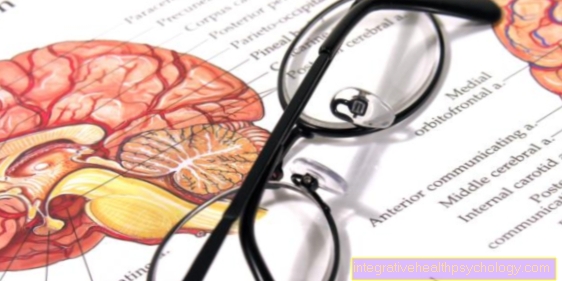
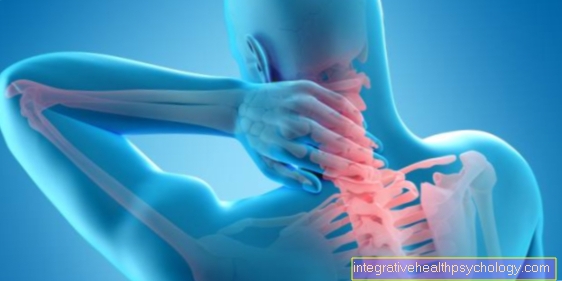



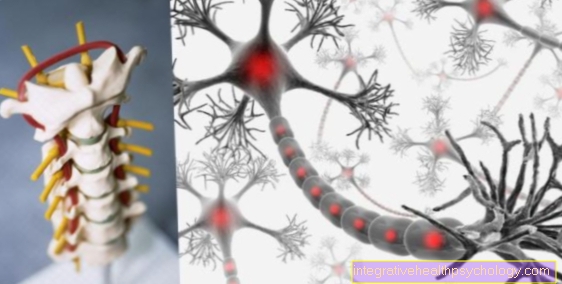
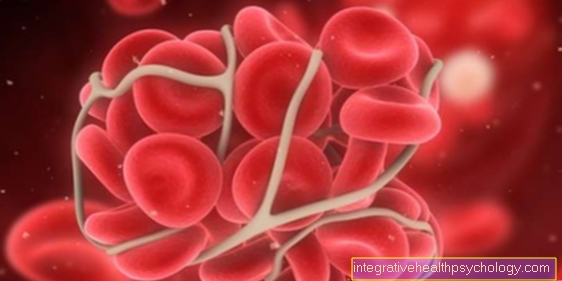
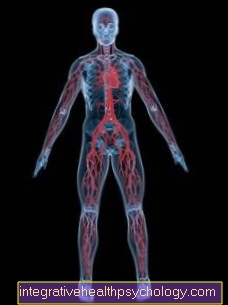

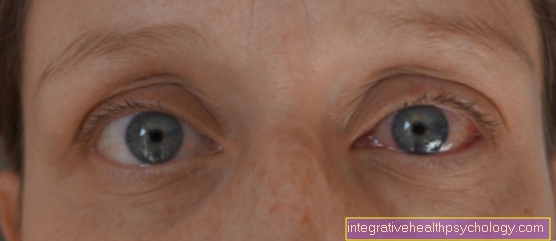
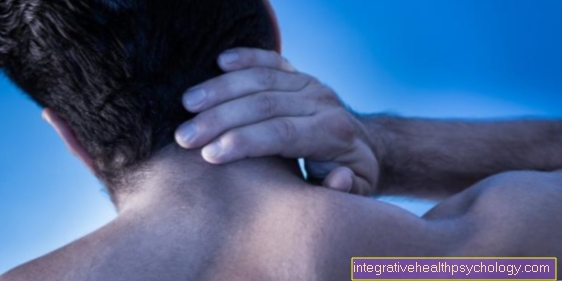


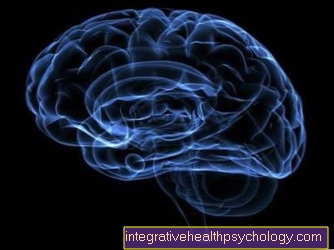

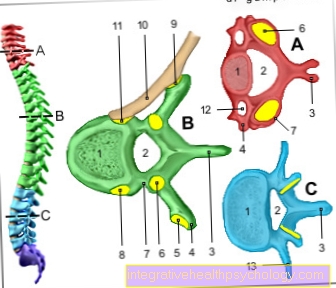
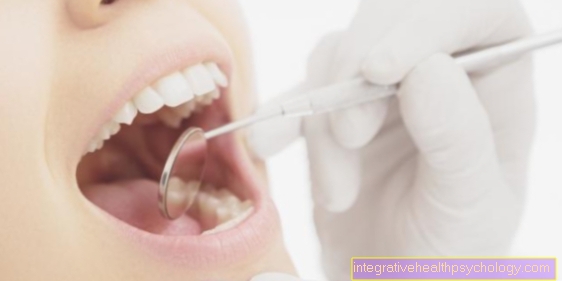

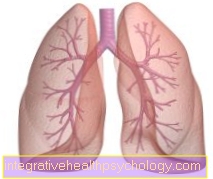
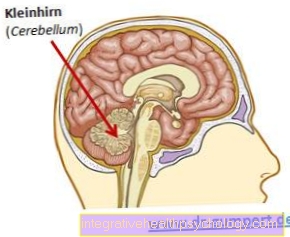
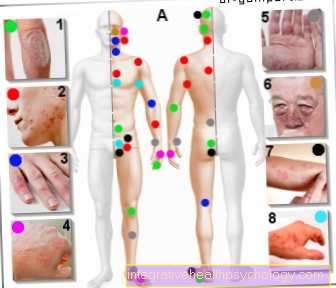


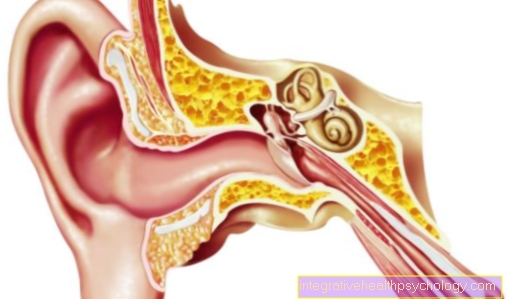
.jpg)
